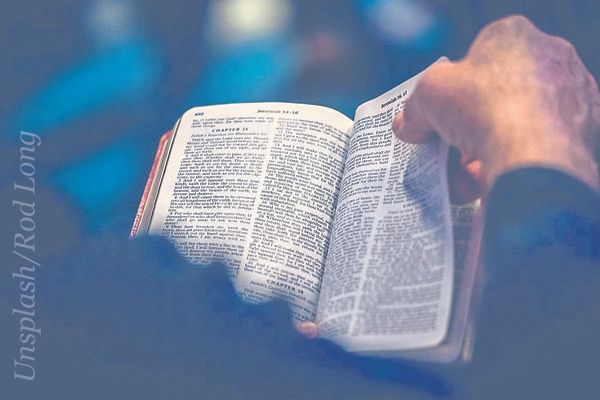‘O little town of Bethlehem’, ‘Hark the herald angels sing’, ‘Once in royal David’s city’, ‘O come all ye faithful’ – we all have our favourite Christmas carols.
Christmas carols are part of our Christian heritage. They capture the story and message of Christmas in verse. They also give articulation to Christian praise. For example: ‘O come let us adore him, Christ, the Lord.’
Did you know that the first ever Christmas carol was uttered by angelic beings and not human beings? Luke 2:13-14 relates the first ever carol. It was uttered on the night of the first ever Christmas.
In the fields surrounding Bethlehem, Luke tells us of ‘a great company of the heavenly host (which) appeared with the angel, praising God and saying, “Glory to God in the highest, and on earth peace to men on first whom his favour rests.”’ Let us analyse this first ever Christmas carol a little more closely.
Christmas praise
We note that this first ever Christmas carol begins by saying, ‘Glory to God in the highest.’ How different this is from some of today’s messages, which seem to say words to the effect of, ‘Glory to man in the lowest.’
Glory to God! Almighty God is the most blessed, glorious, and greatest of all beings. He is incomparable. He is in a category all his own. The goal of the universe is his great glory. Our chief end – according to the Westminster Shorter Catechism – is ‘to glorify God and to enjoy him for ever’.

We may admire some of our fellow human beings for the abilities they have, but truth be told, Almighty God alone is to be worshipped and praised, for he alone is worthy to be worshipped and praised.
The multitude of angels had reason to glorify God. They did so because he had kept his promise and sent into the world ‘a Saviour who is Christ the Lord’ (Luke 2:11).
As far back as Genesis 3:15, at the dawn of world history, God had promised that one would be born who would crush the head of Satan. He would overcome sin and death. He would undo the ravages of the Fall and restore sinners to harmony and fellowship with God our Maker.
In the Lord Jesus Christ God fulfilled his promise. Jesus is the ‘Saviour who is Christ the Lord’. Angels have no need of a Saviour. We do, because we are sinners by nature and practice.
The gospel proclaims that ‘Christ Jesus came into the world to save sinners’ (1 Timothy 1:15). He did so by being born at Bethlehem and eventually offering up his sinless life as an atoning sacrifice for the sins of others on Calvary’s cross. Jesus – the one born at Bethlehem – is the ‘Saviour, who is Christ the Lord’.
‘Christ’ is a title. It means ‘the anointed one’ or ‘Messiah’. ‘Lord’ reminds us that he is the very Son of God and God the Son, to be honoured and worshipped as God alone is to be honoured and worshipped.
Peace on earth?
‘Glory to God in the highest, and on earth peace.’ We live, of course, in a warring world which is not at peace. Workplaces, families, and nations all experience disharmony and conflict. Jesus, however, came to give us personal peace – peace with God. He came from heaven on a peace mission.

By nature we are actually at war with God. Our sin puts us under his wrath. God is angry at sinners. By paying the penalty for the sins of all who believe in him on Calvary’s cross, however, Jesus has pacified the wrath of God for all who believe. He has procured our peace with God.
Colossians 1:20 speaks of Christ ‘making peace by the blood of his cross’. Romans 5:1 affirms, ‘Therefore, since we are justified by faith, we have peace with God through our Lord Jesus Christ.’
Peace, perfect peace, in this dark world of sin? The blood of Jesus whispers peace within. Jesus bestows on us personal peace. Scripture also teaches that Jesus will yet bring in universal peace, at the end of the age, when he comes again in power and great glory, and puts all his enemies under his feet.
The grace of God
Finally, we note that the first ever Christmas carol draws our attention to one of the fundamentals of the Christian faith: the grace of God.
‘Glory to God in the highest, and on earth peace to men on whom his favour rests.’ The Lord Jesus Christ is the unsurpassed and unsurpassable expression and evidence of God’s goodwill and favour to humanity, the ultimate expression of his grace – his undeserved kindness and unmerited favour to undeserving and ill-deserving sinners.
The message of Christmas is the message of the angels, which is the message of the Bible, which is the message of the gospel: that ‘God so loved the world that he gave his only Son that whoever believes in him should not perish but have eternal life’ (John 3:16).

‘But when the goodness and loving kindness of God our Saviour appeared, he saved us, not because of deeds done by us in righteousness, but in virtue of his own mercy’ (Titus 3:4-5).
Salvation, according to the Bible, is solely due to the goodwill of God: his unmerited favour demonstrated in sending his own Son to be the Saviour of all who put their trust in him.
The angels voiced their praise to God for what he had done and said: ‘Glory to God in the highest, and on earth peace to men on whom his favour rests.’
If we belong to Jesus, we have just cause to echo their praise. The hymnwriter put this into verse and wrote: ‘All glory be to God on high, and to the earth be peace, good will henceforth from heaven to men begin and never cease.’










